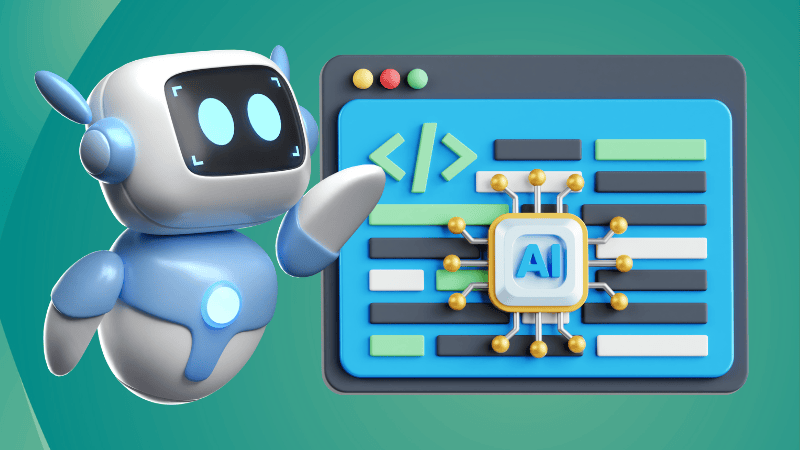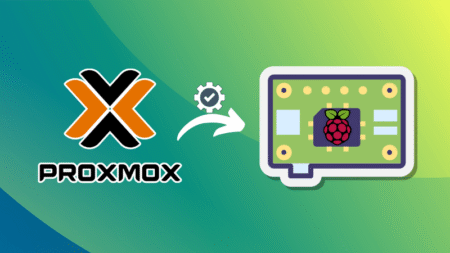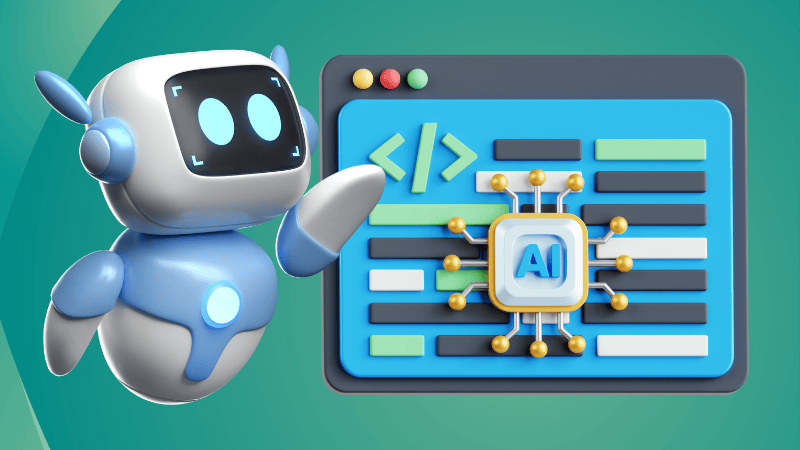
Once upon a time, coding meant sitting down, writing structured logic, and debugging for hours.
Fast-forward to today, and we have Vibe Coding, a trend where people let AI generate entire chunks of code based on simple prompts. No syntax, no debugging, no real understanding of what’s happening under the hood. Just vibes.
Coined by OpenAI co-founder Andrej Karpathy, Vibe Coding is the act of developing software by giving natural language instructions to AI and accepting whatever it spits out.
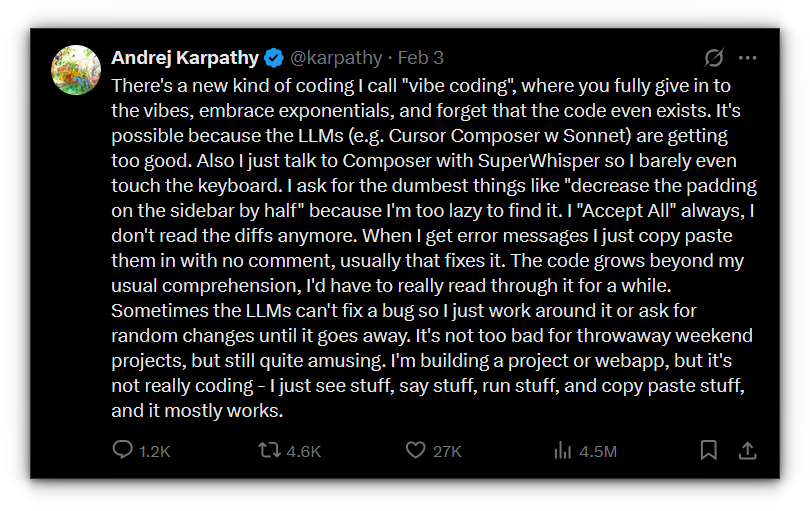
Some people even take it a step further by using voice-to-text tools so they don’t have to type at all. Just describe your dream app, and boom, the AI makes it for you. Or does it?
People are building full-fledged SaaS products in days, launching MVPs overnight, and somehow making more money than seasoned engineers who swear by Agile methodologies.
And here I am, writing about them instead of cashing in myself. Life isn’t fair, huh?
But don’t get me wrong, I’m not here to hate. I’m here to expand on this interesting movement and hand you the ultimate arsenal to embrace vibe coding with these tools.
1. Aider – AI pair programming in your terminal
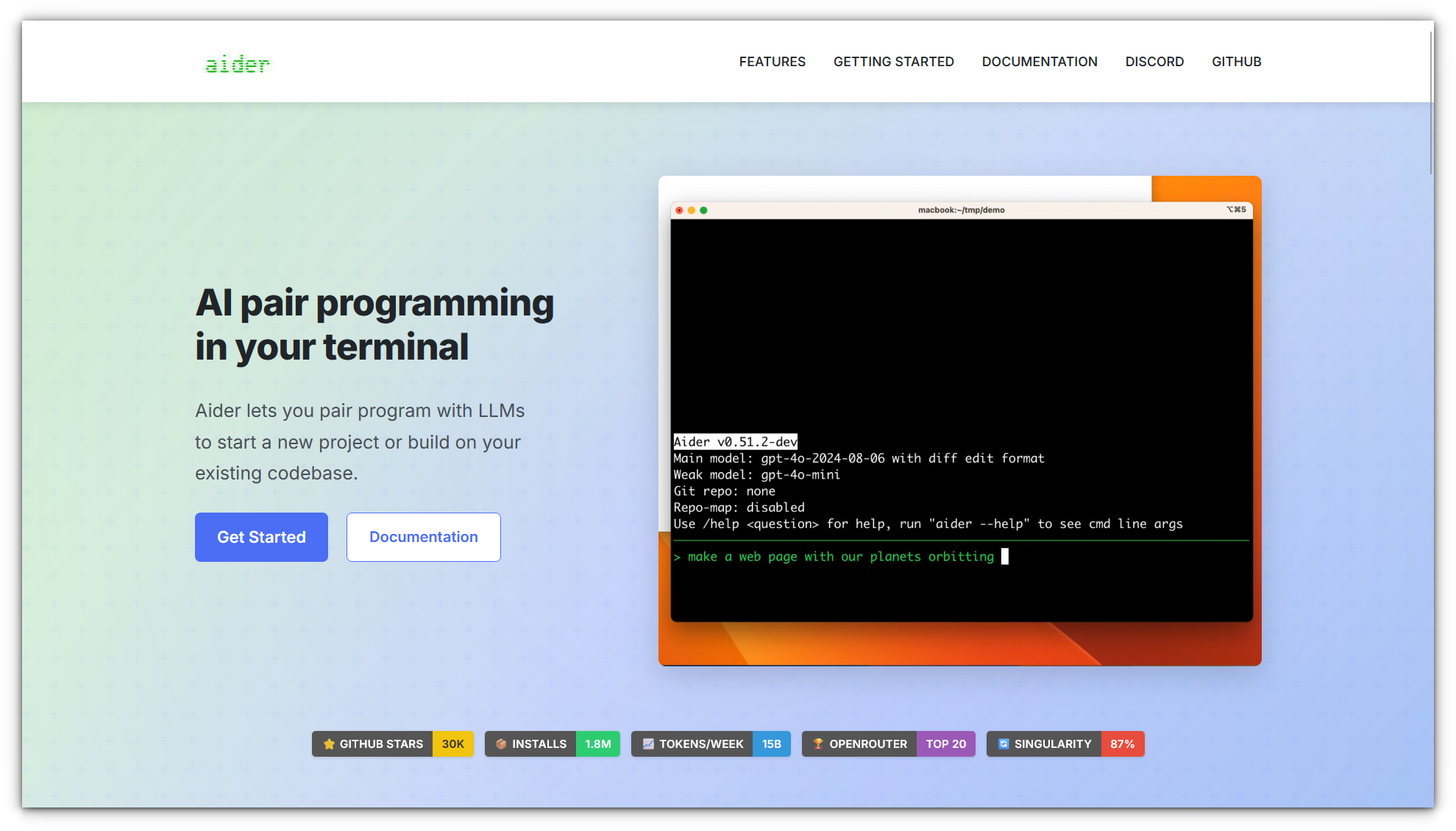
Aider is the perfect choice if you’re looking for a pair programmer to help you ship code faster. It allows you to pair programs with LLMs to edit code in your local GitHub repository. You can start a new project or work with an existing GitHub repo—all from your terminal.
Key Features
✅ Aider works best with Claude 3.7 Sonnet, DeepSeek R1 & Chat V3, OpenAI o1, o3-mini & GPT-4o, but can connect to almost any LLM, including local models.
✅ Aider makes a map of your entire codebase, which helps it work well in larger projects.
✅ Supports most popular programming languages: Python, JavaScript, Rust, Ruby, Go, C++, PHP, HTML, CSS, and more.
✅ Automatically commits changes with sensible commit messages. Use familiar Git tools to easily diff, manage, and undo AI changes.
✅ Use Aider from within your favorite IDE or editor. Ask for changes by adding comments to your code, and Aider will get to work.
✅ Add images and web pages to the chat to provide visual context, screenshots, and reference docs.
✅ Automatically lint and test your code every time Aider makes changes. It can fix problems detected by linters and test suites.
✅ Works best with LLM APIs but also supports web chat interfaces, making copy-pasting code seamless.
2. VannaAI – Chat with SQL Database
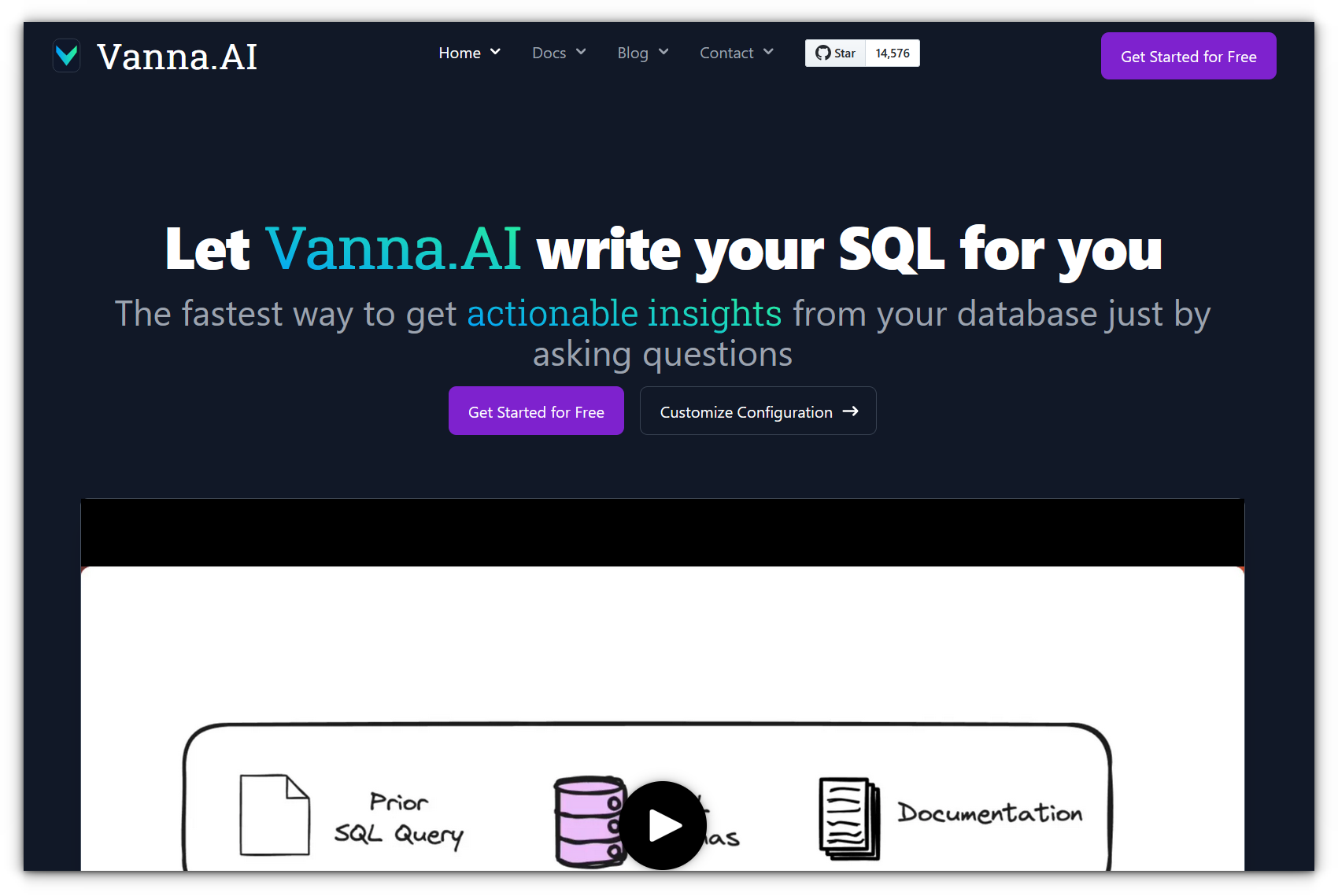
Writing SQL queries can be tedious, but VannaAI changes that by letting you interact with SQL databases using natural language.
Instead of manually crafting queries, you describe what you need, and VannaAI generates the SQL for you.
It Works in two steps, Train a RAG “model” on your data and then ask questions that return SQL queries.
Key Features
✅ Out-of-the-box support for Snowflake, BigQuery, Postgres, and more.
✅ The Vanna Python package and frontend integrations are all open-source, allowing deployment on your infrastructure.
✅ Database contents are never sent to the LLM unless explicitly enabled.
✅ Improves continuously by augmenting training data.
✅ Use Vanna in Jupyter Notebooks, Slackbots, web apps, Streamlit apps, or even integrate it into your own web app.
VannaAI makes querying databases as easy as having a conversation, making it a game-changer for both technical and non-technical users.
3. All Hands – Open source agents for developers
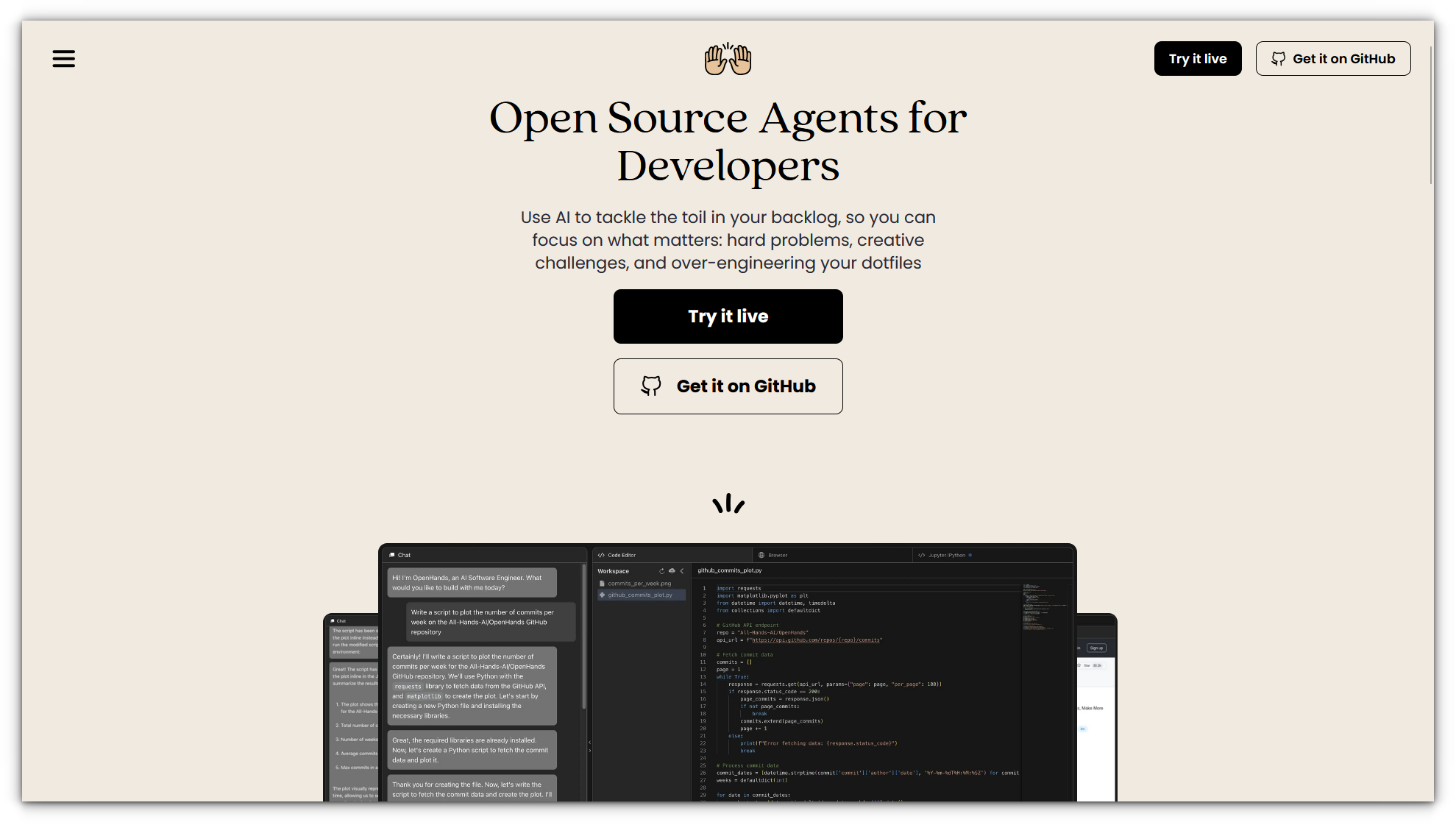
All Hands is an open-source platform for AI developer agents, capable of building projects, adding features, debugging, and more.
Competing with Devin, All Hands recently topped the SWE-bench leaderboard with 53% accuracy.
Key Features
✅ Use All Hands via an interactive GUI, command-line interface (CLI), or non-interactive modes like headless execution and GitHub Actions.
✅ Open-source freedom, built under the MIT license to ensure AI technology remains accessible to all.
✅ Handles complex tasks, from code generation to debugging and issue fixing.
✅ Developed in collaboration with AI safety experts like Invariant Labs to balance innovation and security.
To get started, install Docker 26.0.0+ and run OpenHands using the provided Docker commands. Once running, configure your LLM provider and start coding with AI-powered assistance.
4. Continue – Leading AI-powered code assistant
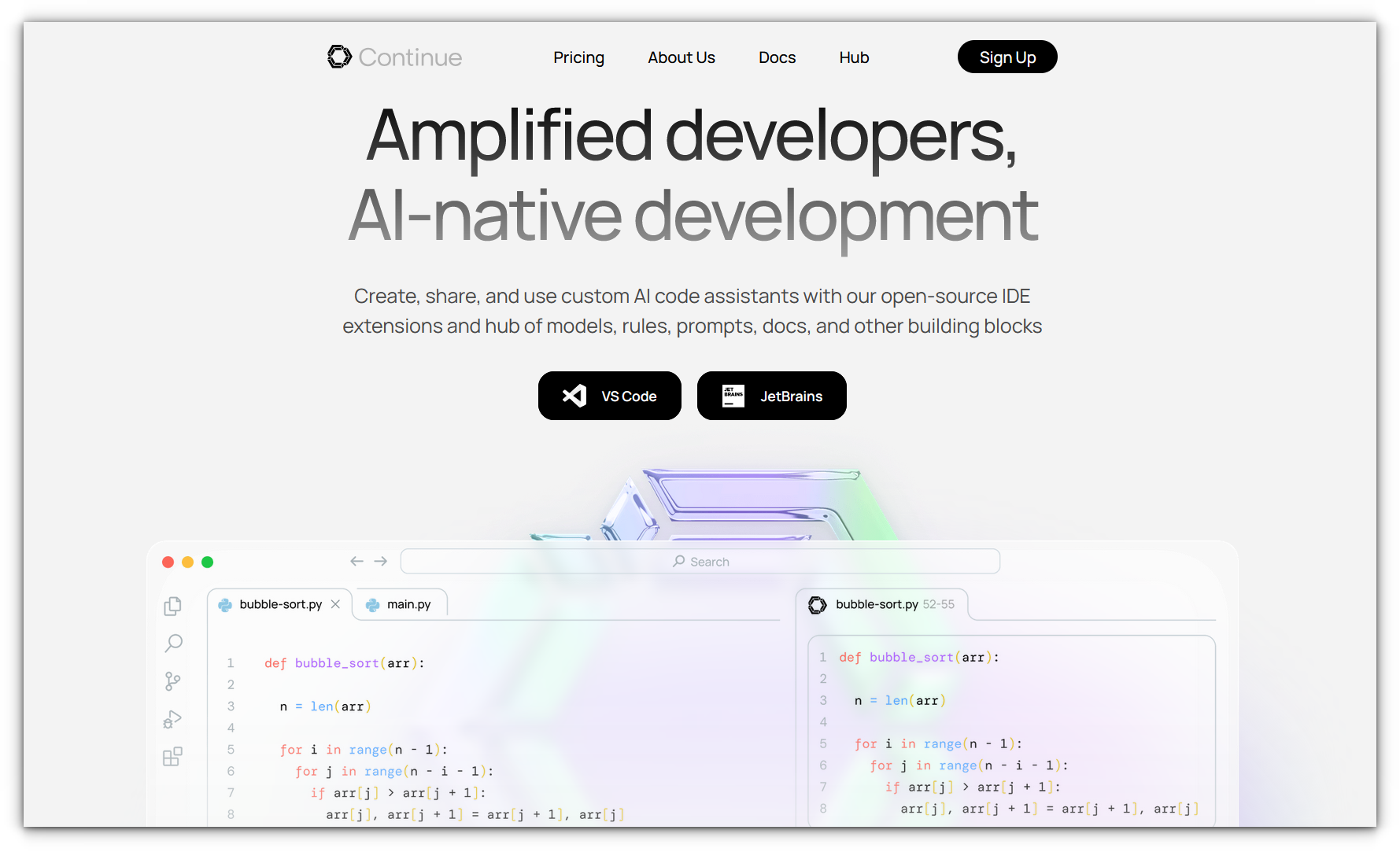
You must have heard about Cursor IDE, the popular AI-powered IDE; Continue is similar to it but open source under Apache license.
It is highly customizable and lets you add any language model for auto-completion or chat. This can immensely improve your productivity. You can add Continue to VScode and JetBrains.
Key Features
✅ Continue autocompletes single lines or entire sections of code in any programming language as you type.
✅ Attach code or other context to ask questions about functions, files, the entire codebase, and more.
✅ Select code sections and press a keyboard shortcut to rewrite code from natural language.
✅ Works with Ollama, OpenAI, Together, Anthropic, Mistral, Azure OpenAI Service, and LM Studio.
✅ Codebase, GitLab Issues, Documentation, Methods, Confluence pages, Files.
✅ Data blocks, Docs blocks, Rules blocks, MCP blocks, Prompts blocks.
5. Wave – Terminal with local LLMs
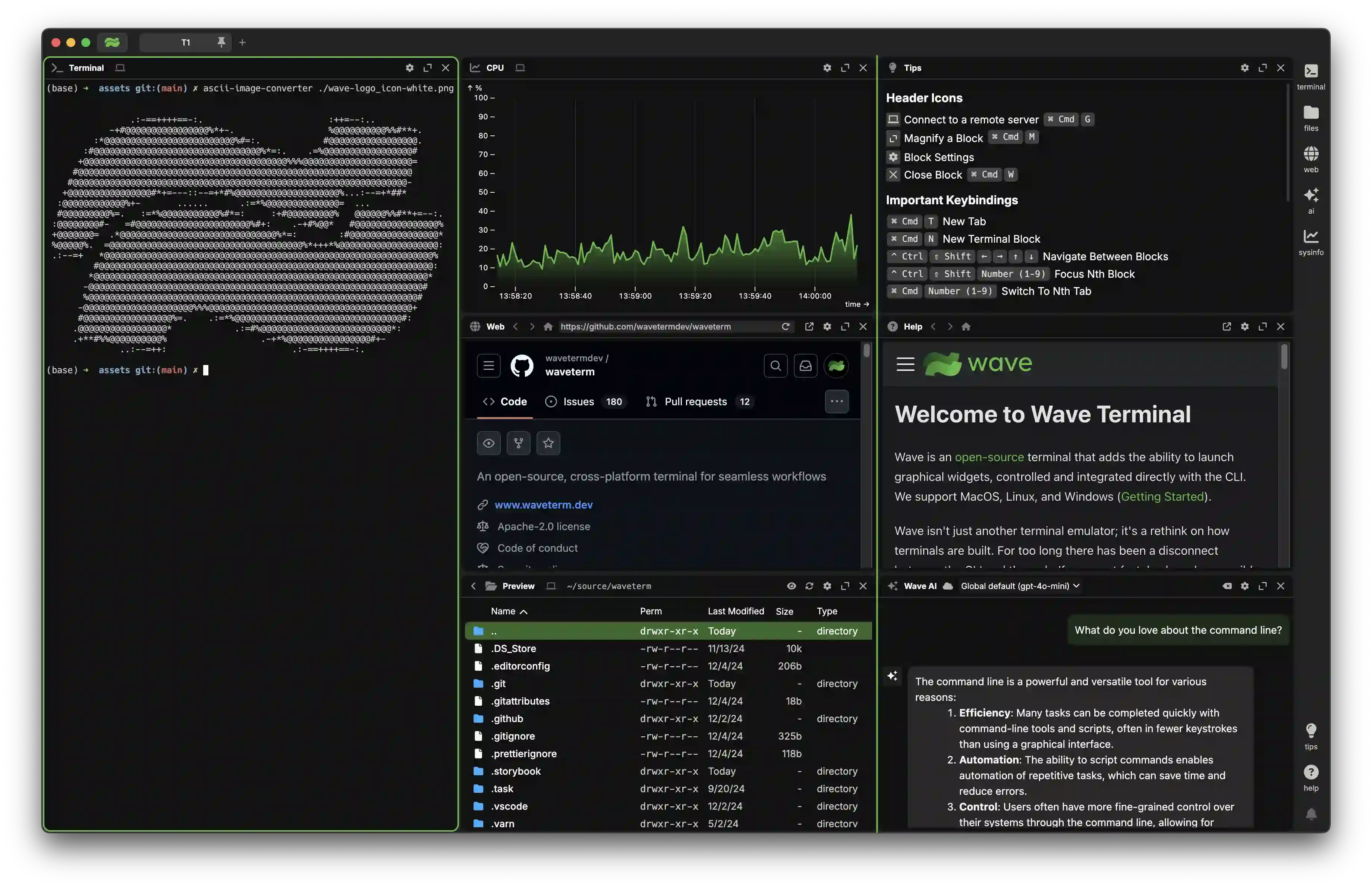
Wave terminal introduces BYOLLM (Bring Your Own Large Language Model), allowing users to integrate their own local or cloud-based LLMs into their workflow.
It currently supports local LLM providers such as Ollama, LM Studio, llama.cpp, and LocalAI while also enabling the use of any OpenAI API-compatible model.
Key Features
✅ Use local or cloud-based LLMs, including OpenAI-compatible APIs.
✅ Seamlessly integrate LLM-powered responses into your terminal workflow.
✅ Set the AI Base URL and AI Model in the settings or via CLI.
✅ Plans to include support for commercial models like Gemini and Claude.
6. Warp terminal – Agent mode (not open source)
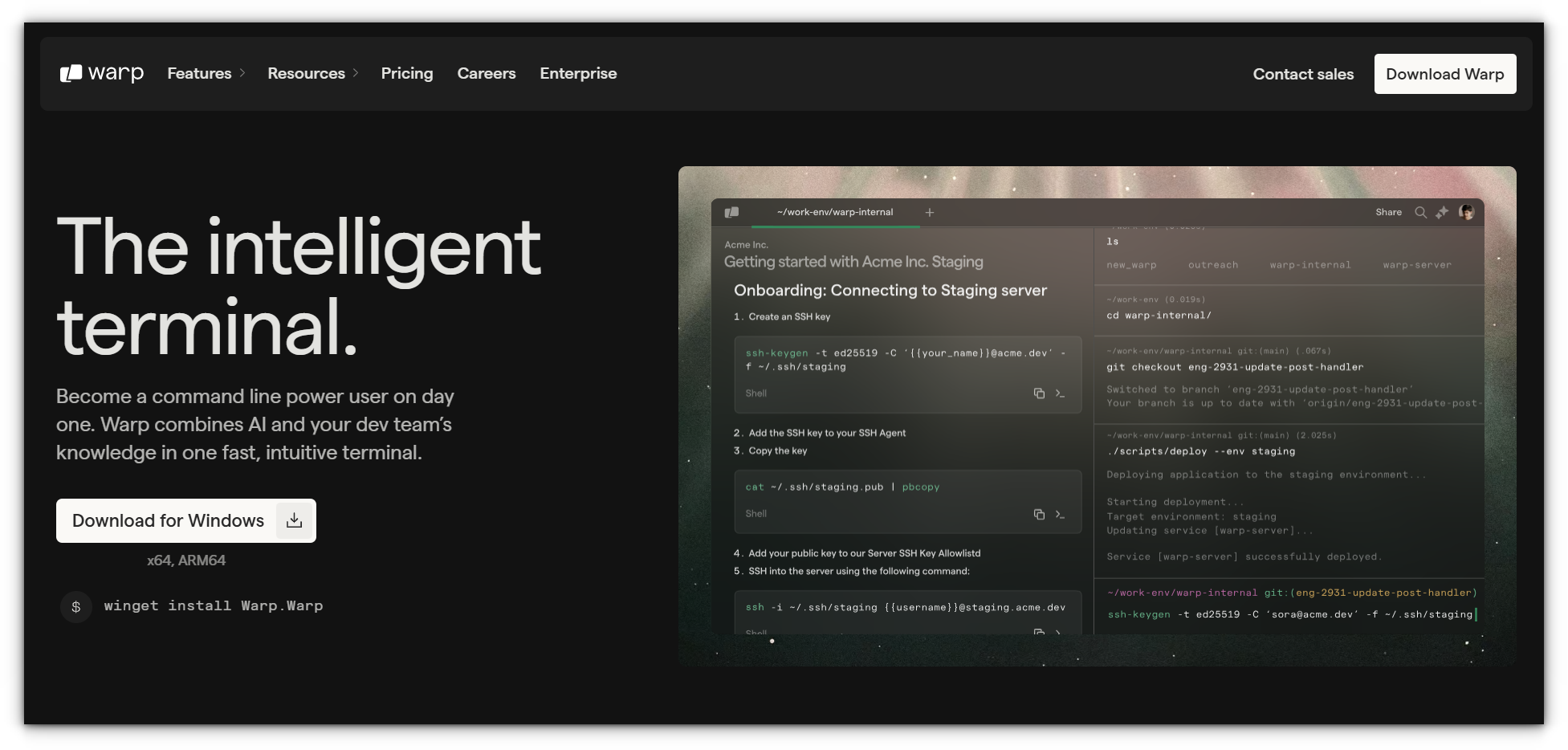
After WaveTerm, we have another amazing contender in the AI-powered terminal space, Warp Terminal. I personally use this so I may sound biased. 😛
It’s essentially an AI-powered assistant that can understand natural language, execute commands, and troubleshoot issues interactively.
Instead of manually looking up commands or switching between documentation, you can simply describe the task in English and let Agent Mode guide you through it.
Key Features
✅ No need to remember complex CLI commands, just type what you want, like “Set up an Nginx reverse proxy with SSL”, and Agent Mode will handle the details.
✅ Ran into a “port 3000 already in use” error? Just type “fix it”, and Warp will suggest running kill $(lsof -t -i:3000). If that doesn’t work, it’ll refine the approach automatically.
✅ Works seamlessly with Git, AWS, Kubernetes, Docker, and any other tool with a CLI. If it doesn’t know a command, you can tell it to read the help docs, and it will instantly learn how to use the tool.
✅ Warp doesn’t send anything to the cloud without your permission. You approve each command before it runs, and it only reads outputs when explicitly allowed.
It seems like Warp is moving from a traditional AI-assisted terminal to an interactive AI-powered shell, making the command line much more intuitive.
Would you consider switching to it, or do you think this level of automation might be risky for some tasks?
7. Pieces : AI extension to IDE (not open source)
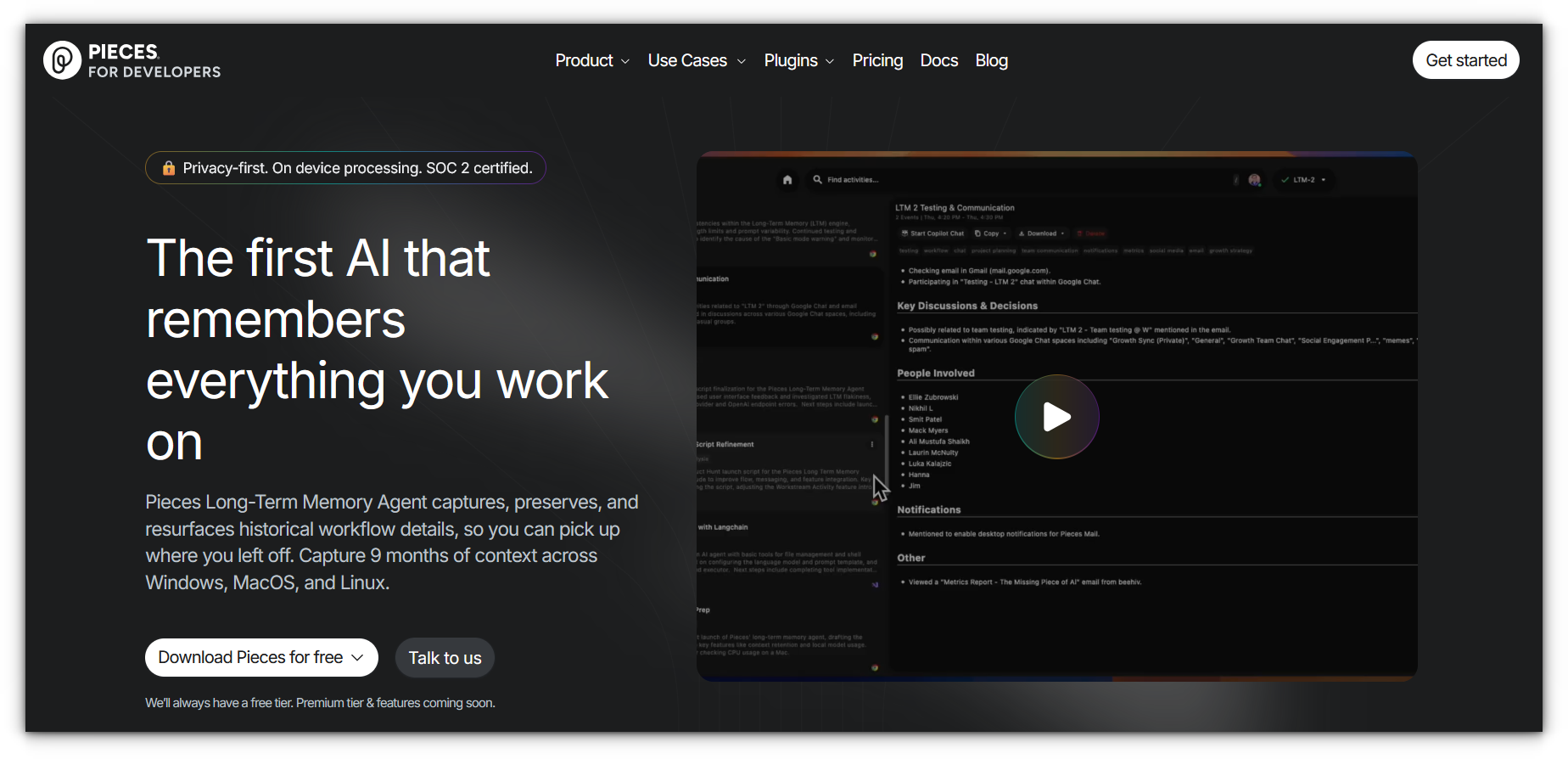
Pieces isn’t a code editor itself, it’s an AI-powered extension that supercharges editors like VS Code, Sublime Text, Neovim and many more IDE’s with real-time intelligence and memory.
Its highlighted feature is Long-Term Memory Agent that captures up to 9 months of coding context, helping you seamlessly resume work, even after a long break.
Everything runs locally for full privacy. It understands your code, recalls snippets, and blends effortlessly into your dev tools to eliminate context switching.
Bonus: it’s free for now, with a free tier promised forever, but they will start charging soon, so early access might come with perks.
Key Features
✅ Stores 9 months of local coding context
✅ Integrates with Neovim, VS Code, and Sublime Text
✅ Fully on-device AI with zero data sharing
✅ Context-aware suggestions via Pieces Copilot
✅ Organize and share snippets using Pieces Drive
✅ Always-free tier promised, with early adopter perks
8. Aidermacs: AI aided coding in Emacs
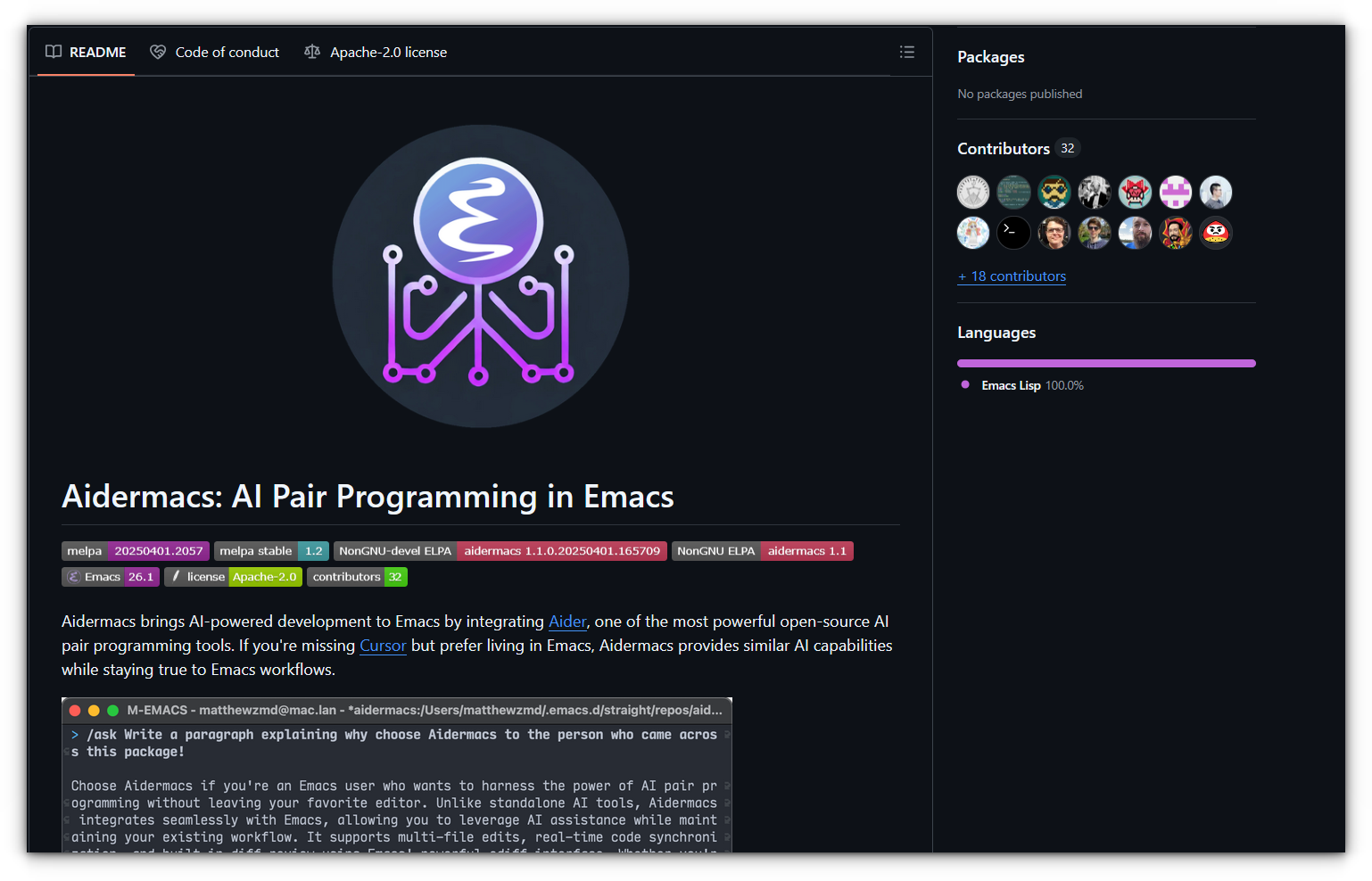
Aidermacs by MatthewZMD is for the Emacs power users who want that sweet Cursor-style AI experience; but without leaving their beloved terminal.
It’s a front-end for the open-source Aider, bringing powerful pair programming into Emacs with full respect for its workflows and philosophy.
Whether you’re using GPT-4, Claude, or even DeepSeek, Aidermacs auto-detects your available models and lets you chat with them directly inside Emacs.
And yes, it’s deeply customizable, as all good Emacs things should be.
Key Features
✅ Integrates Aider into Emacs for collaborative coding
✅ Intelligent model selection from OpenAI, Anthropic, Gemini, and more
✅ Built-in Ediff for side-by-side AI-generated changes
✅ Fine-grained file control: edit, read-only, scratchpad, and external
✅ Fully theme-aware with Emacs-native UI integration
✅ Works well in terminal via vterm with theme-based colors
9. Jeddict AI Assistant
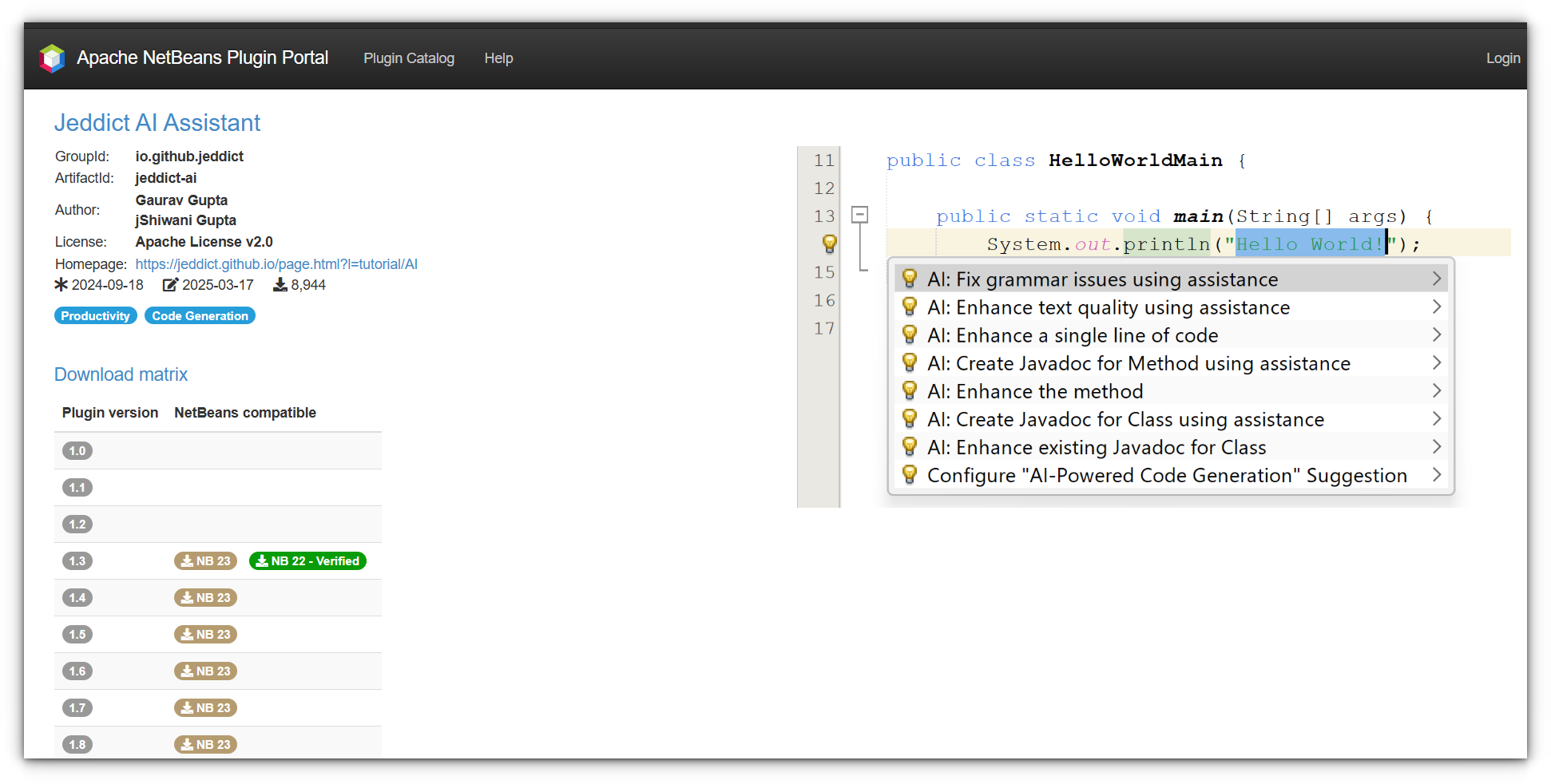
This one is for my for the Java folks, It’s a plugin for Apache NetBeans. I remember using NetBeans back in school, and if this AI stuff was around then, I swear I would’ve aced my CS practicals.
This isn’t your average autocomplete tool. Jeddict AI Assistant brings full-on AI integration into your IDE: smarter code suggestions, context-aware documentation, SQL query help, even commit messages.
It’s especially helpful if you’re dealing with big Java projects and want AI that actually understands what’s going on in your code.
Key Features
✅ Smart, inline code completions using OpenAI, DeepSeek, Mistral, and more
✅ AI chat with full awareness of project/class/package context
✅ Javadoc creation & improvement with a single shortcut
✅ Variable renaming, method refactoring, and grammar fixes via AI hints
✅ SQL query assistance & inline completions in the database panel
✅ Auto-generated Git commit messages based on your diffs
✅ Custom rules, file context preview, and experimental in-editor updates
✅ Fully customizable AI provider settings (supports LM Studio, Ollama, GPT4All too!)
10. Amazon CodeWhisperer
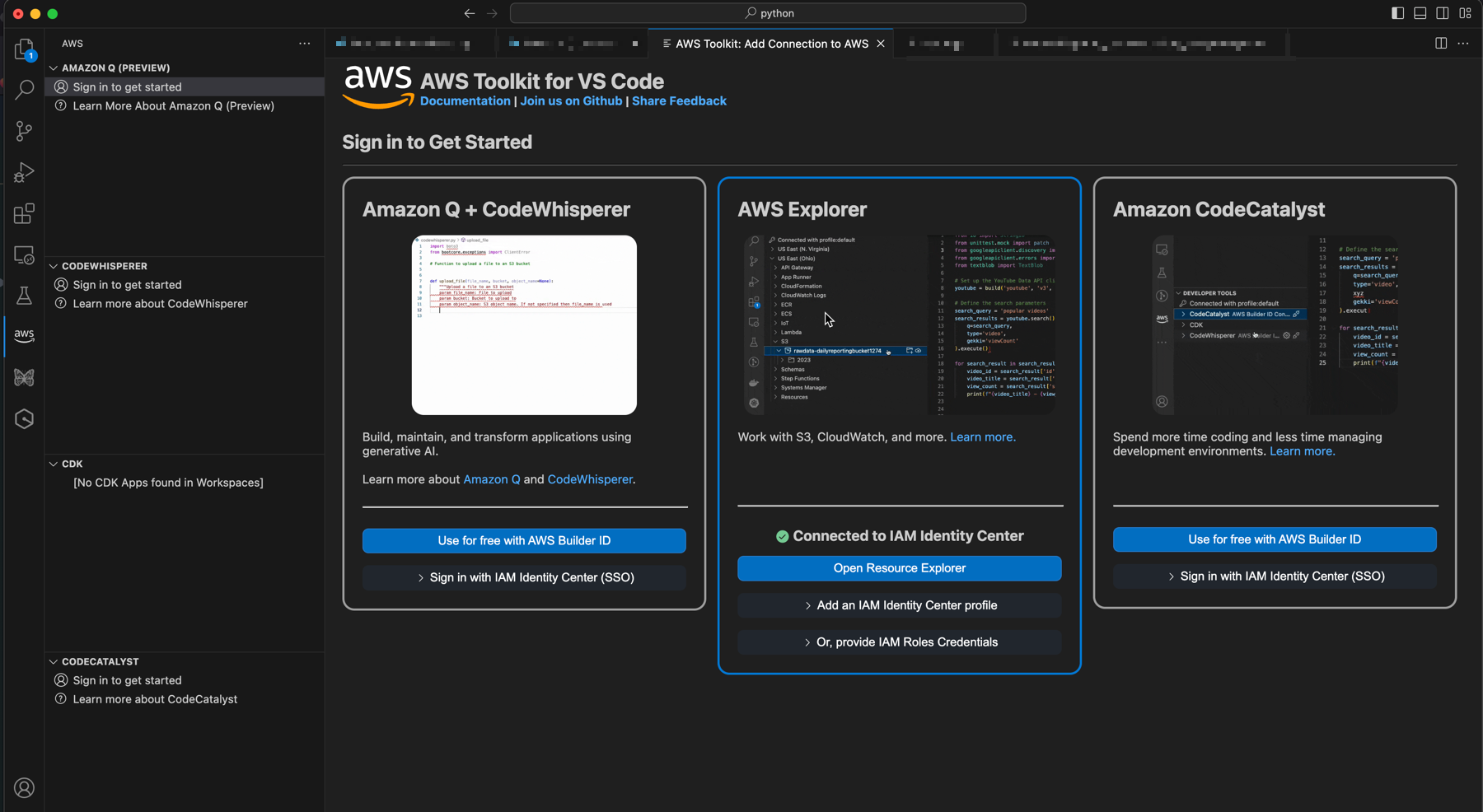
If your coding journey revolves around AWS services, then Amazon CodeWhisperer might be your ideal AI-powered assistant.
While it works like other AI coding tools, its real strength lies in its deep integration with AWS SDKs, Lambda, S3, and DynamoDB.
CodeWhisperer is fine-tuned for cloud-native development, making it a go-to choice for developers building serverless applications, microservices, and infrastructure-as-code projects.
Since it supports Visual Studio Code and JetBrains IDEs, AWS developers can seamlessly integrate it into their workflow and get AWS-specific coding recommendations that follow best practices for scalability and security.
Plus, individual developers get free access, making it an attractive option for solo builders and startup developers.
Key Features
✅ Optimized code suggestions for AWS SDKs and cloud services.
✅ Built-in security scanning to detect vulnerabilities.
✅ Supports Python, Java, JavaScript, and more.
✅ Free for individual developers.
11. Qodo AI (previously Codium)

If you’ve ever been frustrated by the limitations of free AI coding tools, qodo might be the answer.
Supporting over 50 programming languages, including Python, Java, C++, and TypeScript, qodo integrates smoothly with Visual Studio Code, IntelliJ, and JetBrains IDEs.
It provides intelligent autocomplete, function suggestions, and even code documentation generation, making it a versatile tool for projects of all sizes.
While it may not have some of the advanced features of paid alternatives, its zero-cost access makes it a game-changer for budget-conscious developers.
Key Features
✅ Unlimited free code completions with no restrictions.
✅ Supports 50+ programming languages, including Python, Java, and TypeScript.
✅ Works with popular IDEs like Visual Studio Code and JetBrains.
✅ Lightweight and responsive, ensuring a smooth coding experience.
Final thoughts
With time, we’re undoubtedly going to see more AI-assisted coding take center stage. As Anthropic CEO Dario Amodei puts it, AI will write 90% of code within six months and could automate software development entirely within a year.
Whether that’s an exciting leap forward or a terrifying thought depends on how much you trust your AI pair programmer.
If you’re diving into these tools, I highly recommend brushing up on the basics of coding and version control.
AI can write commands for you, but if you don’t know what it’s doing, you might go from “I just built the next billion-dollar SaaS!” to “Why did my AI agent just delete my entire codebase?” in a matter of seconds.
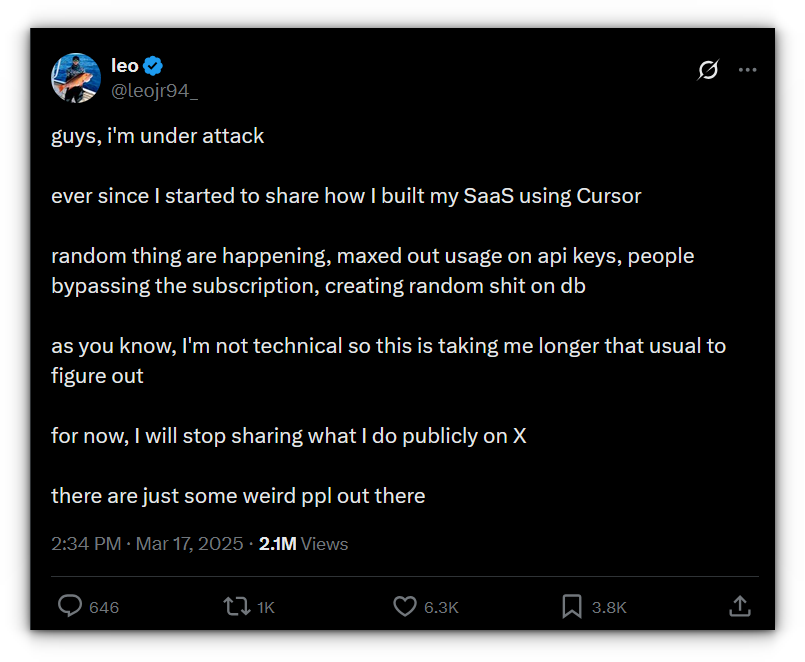
That said, this curated list of amazing open-source tools should get you started. Whether you’re a seasoned developer or just someone who loves typing cool things into a terminal, these tools will level up your game.
Just remember: the AI can vibe with you, but at the end of the day, you’re still the DJ of your own coding playlist (sorry for the cringy line 👉👈).
Source: Read More
